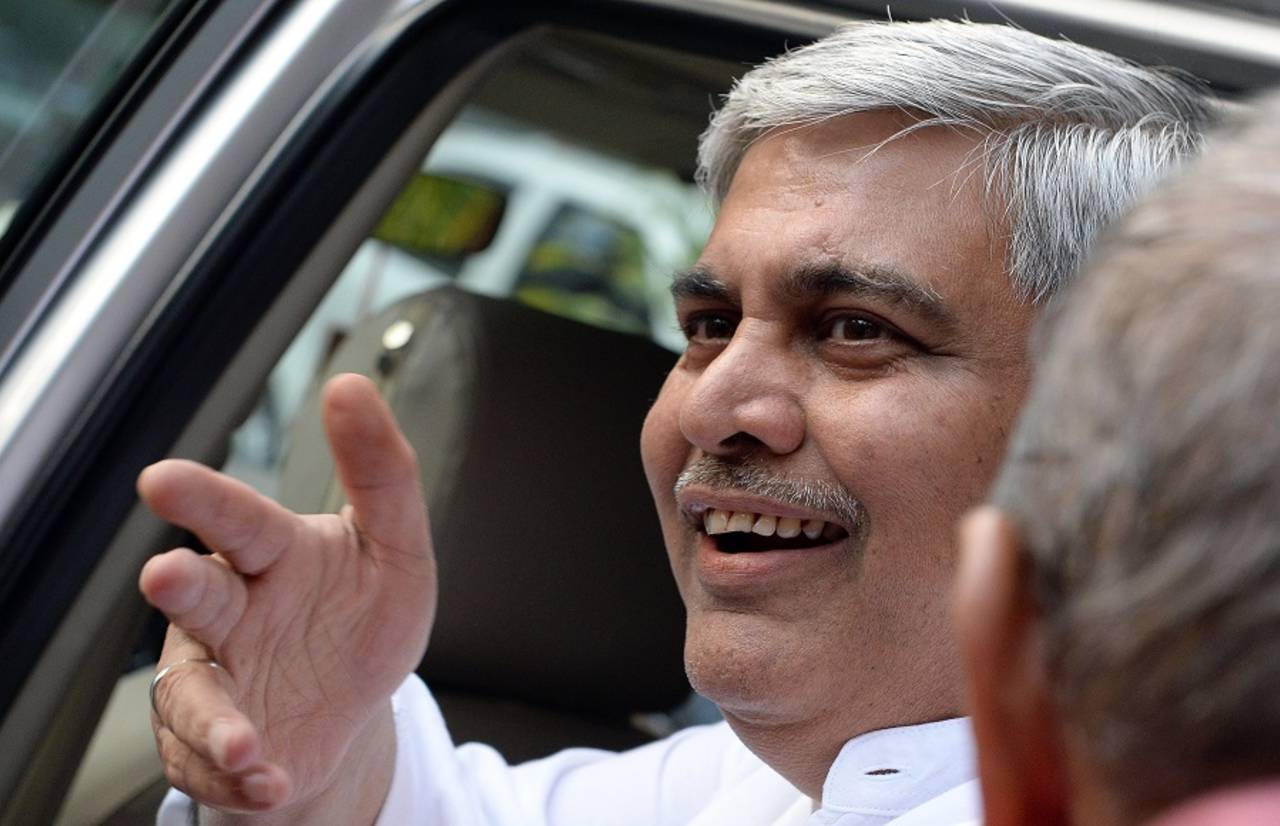Key questions for the ICC's new chairman
Three contentious issues that could come under scrutiny when Shashank Manohar takes over as the ICC's first independent chairman
ESPNcricinfo staff
12-May-2016

Shashank Manohar is the first ICC chairman who holds no office with any national cricket board • AFP
Shashank Manohar's election as the first independent ICC chairman - an official who holds no office with any national cricket board - is seemingly the first step towards a possible rollback of some of the amendments made to the ICC constitution in 2014, which had given the Big Three - the BCCI, Cricket Australia and the ECB - greater control of the administration of international cricket. ESPNcricinfo lists three contentious issues that could come under scrutiny in the wake of Manohar's appointment.
Distribution of ICC revenues
The Big Three revamp brought in a graded revenue distribution model based on a calculation of relative contribution to ICC's income, and the largest share went to the BCCI, followed by the ECB and CA. It was argued in absolute terms all the boards would receive bigger amounts than the earlier cycle because of a bigger TV rights deal, but in reality the percentages of all the boards went down. Further, all the boards apart from the Big Three were promised a sum of $10 million each over eight years from a Test Cricket Fund.
The Big Three revamp brought in a graded revenue distribution model based on a calculation of relative contribution to ICC's income, and the largest share went to the BCCI, followed by the ECB and CA. It was argued in absolute terms all the boards would receive bigger amounts than the earlier cycle because of a bigger TV rights deal, but in reality the percentages of all the boards went down. Further, all the boards apart from the Big Three were promised a sum of $10 million each over eight years from a Test Cricket Fund.
Governance structure
The Big Three distributed top three chairs among themselves; BCCI got the chairman's post, the ECB nominee headed the Finance and Commercial Affairs committee, and the CA nominee headed a newly-formed Executive Committee. These bodies were vested with critical decision-making powers. Future heads of the Executive Committee were to be picked from the Big Three representatives on a rotational basis. After resistance from other members the Executive Committee was expanded to accommodate CSA.
The Big Three distributed top three chairs among themselves; BCCI got the chairman's post, the ECB nominee headed the Finance and Commercial Affairs committee, and the CA nominee headed a newly-formed Executive Committee. These bodies were vested with critical decision-making powers. Future heads of the Executive Committee were to be picked from the Big Three representatives on a rotational basis. After resistance from other members the Executive Committee was expanded to accommodate CSA.
Though under the old system the ICC chairman's post could be contested by any Full Member representative after 2016, moves were being made for the ECB's Giles Clarke to take over from the BCCI's N Srinivasan. While the ICC's new system of having an independent chairman has redressed one part of the issue, the Big Three influence in the the Finance and Commercial Affairs committee and Executive Committee remains.
Future Tours Programme
The previous method of having an FTP to determine the international calendar was ended and a new one, where countries would sign legally binding contracts for bilateral series, was put in place. In practice this caused an imbalance and led to a proliferation of fixtures and increased lobbying between boards to secure the tours they wanted.
The previous method of having an FTP to determine the international calendar was ended and a new one, where countries would sign legally binding contracts for bilateral series, was put in place. In practice this caused an imbalance and led to a proliferation of fixtures and increased lobbying between boards to secure the tours they wanted.